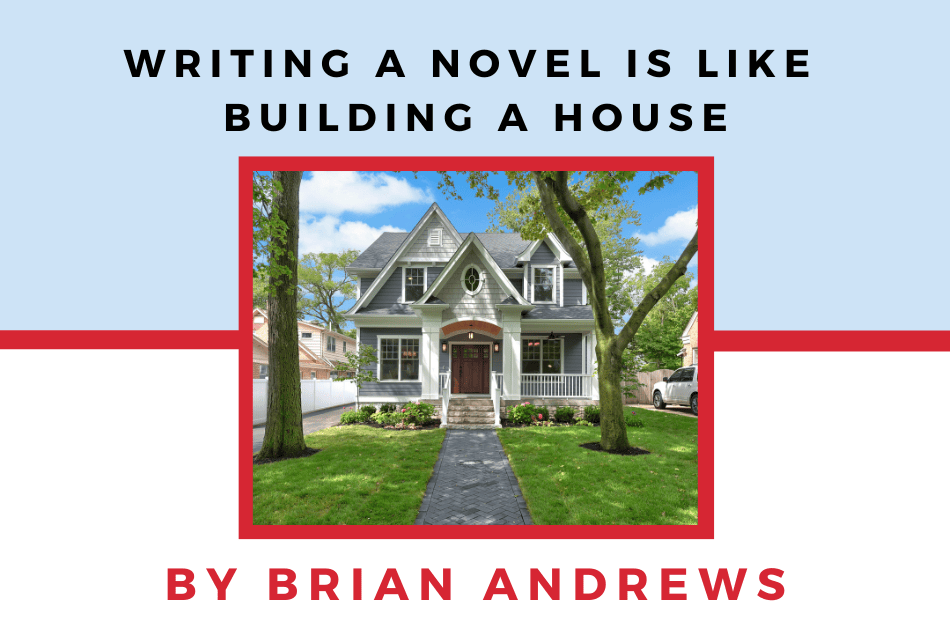by Brian Andrews
As someone who recently finished building a house and just put the finishing touches on my 22nd novel, it occurred to me that writing a novel and building a house share many similarities. They both require vision, careful planning, attention to detail, supervision, and hard work. To do it right, both are time consuming, can be frustrating, and suffer the occasional setback. But with enthusiasm, persistence, and a desire to see it through to the end, both endeavors produce beautiful and life changing results.
Start With Vision
The most beautiful homes and novels begin with vision…a vision in the mind of the creator what the finished product is going to look like. Builders and authors who can imagine what their creation will look like before they even get started are
Plan Your Work, Work Your Plan
Before you can start writing a novel or building a house, you need a plan. In the case of a house, a plan is created by an architect that provides all the measurements and dimensions for the construction trades to build the house to specification. For a novel, the author is the architect. On this blog, we feature many articles about how to outline a novel…the outline is the author’s equivalent of construction drawings.
Build A Solid Foundation
The foundation of your novel or house is essential for its overall stability. In the case of a house, the foundation is the concrete that supports the structure. For a novel, the foundation is plot. Without a rock solid plot, all the other elements of the story characterization, suspense, action, dialogue, etcetera, will collapse into an unsatisfying heap of rubble in the basement.
Framing is Essential
Once the foundation, the framing process begins. In the case of a novel, the type of framing I use is the time tested and best-seller proven 3 Act structure. Inciting event, complication, subplots, conflict, climax, and resolution—these are walls, stairs, windows, railings, and roof of a novel.
There Will Be Setbacks
No matter how good the plan, there will always be setbacks when writing a novel or building a house. In the case of home building, it could be weather, labor, or material problems that delay construction or force changes and cuts. In the case of writing a novel, there where be times you feel lost, uncertain, or demoralized. But, hard work and a commitment to meet the completion date is the antidote!
Both Reflect The Dreams and Personality of the Creator
Whether you’re writing your novel or building, the finished product will reflect the dreams, passion, creativity and priorities of the creator. There is nothing more rewarding than creating something out of nothing that will last forever and also bring joy to you and all the people who “live” inside the world you’ve built.
Here are some other tips I learned from building a house that inform my writing process:
- Ask Questions, Lots of Them: Seek out experienced craftsmen (writers) to help teach you the solutions to mistakes you don’t you’re going to make
- Invest In Your Dream. Buy a good chair. Invest in a good computer. Pay for Masterclasses or a developmental edit if you need one. To create a quality product, you need to invest both time and money.
- Don’t Rush It. Writing a good novel takes time. You’ll be tempted to cut corners to rush the process. Don’t!
- Be Flexible. Things don’t always go according to plan, so be prepared to pivot, rework, and rewrite.
- Don’t give up. Writing a novel is hard work, but seeing your work published and in the hands of readers is one of the most rewarding feeling imaginable. The only one who can stop you from finishing is you!
So what are you waiting for? Start “building” your novel today!
Share your literary housekeeping tips with us on Facebook.





